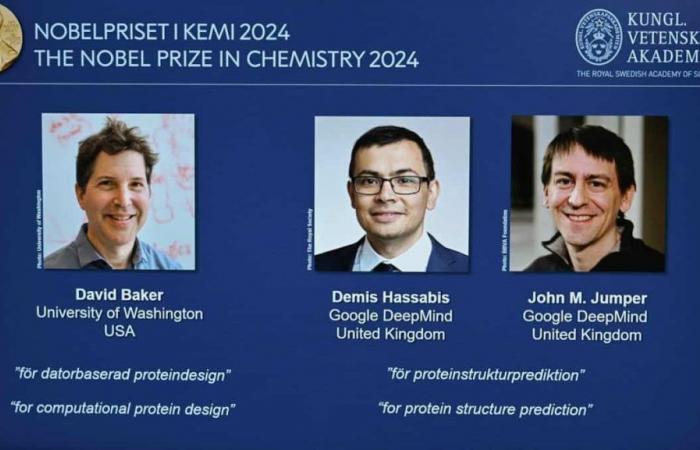The Nobel Prize in Chemistry was awarded on Wednesday half to the American David Baker and the other half to the British Demis Hassabis and the American John Jumper, for their research on protein structures.
David Baker, a 62-year-old biochemist, was awarded “for computational protein design,” while Demis Hassabis and John Jumper were awarded for their work on “protein structure prediction” via artificial intelligence, according to the jury press release.
Mr. Baker “achieved the almost impossible feat of constructing entirely new proteins,” explains the jury.
“Among a myriad of scientific applications, researchers can now better understand antibiotic resistance and create images of enzymes that can break down plastic,” he adds.
The duo of Demis Hassabis and John Jumper, who run Google Deepmind, have “developed an artificial intelligence model to solve a 50-year-old problem: predicting the complex structures of proteins.”
Their AI model, Alphafold, can predict the three-dimensional structure of proteins based on their amino acid. The two men, cited among the favorites, had already received the prestigious Lasker Prize in 2023.
The jury noted that the discoveries of this year’s winners “offer enormous potential.”
Last year, the Nobel Prize in Chemistry was awarded to a trio for their research on nanoparticles called quantum dots: Moungi Bawendi, Louis Brus and Alexei Ekimov, born respectively in France, the United States and the USSR.
For the winners of the 2024 vintage, the check accompanying the prize is for 11 million crowns (920,000 euros), to be shared in the event of multiple winners.






